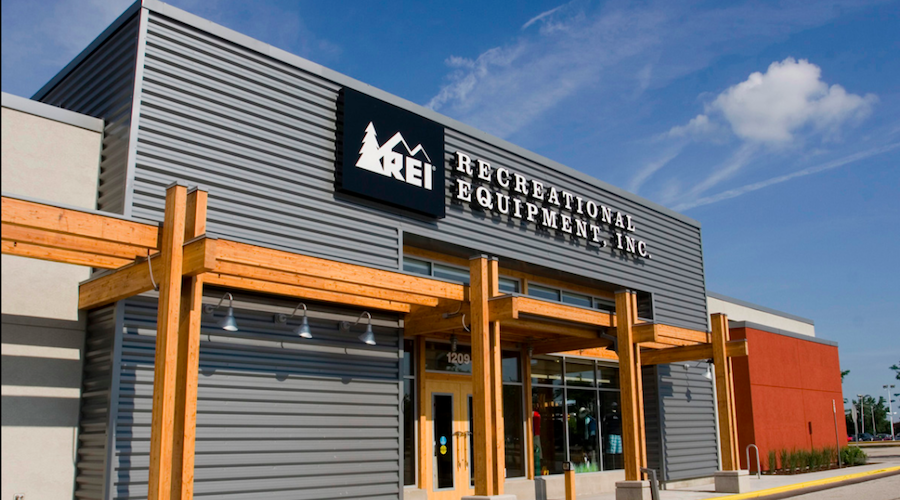Shrugging off a challenging year marked by numerous bankruptcies in the active lifestyle space, REI saw earnings climb 8.2 percent in 2016 on a 5.5 percent revenue gain.
Net income for the co-op reached $38.3 million, up from $35.4 million a year ago.
Sales rose to $2.56 billion, up from $2.42 billion. Comparable store sales, which include direct to consumer sales, were up nearly 4 percent and digital sales grew by nearly 18 percent.
The performance continued a streak of strong sales gains. In 2015, comparable-store sales grew 7 percent with digital sales ahead nearly 23 percent. In the prior years, same-store sales grew 4.2 percent in 2014, 2.9 percent in 2013 and 4.1 percent in 2012.
“There is no doubt that the current retail landscape is challenging, but we had another good year,” said Stritzke in a statement. “I am grateful to our employees, our members and our customers for their passion and commitment to the co-op community. Your involvement and commitment to REI allows us to do things like help build the nation’s trail network, protect public lands, and innovate in sustainability. Together we can continue to keep the outdoors healthy and accessible for the next generation.”
The bottom line was supported by an improving margin rate. Gross margins rose to 42.9 percent from 42.7 percent the prior year. The operating expense rate increased slightly to 35.8 percent, up from 35.5 percent. As a result, operating income improved 3.4 percent to $181.4 million. The company ended the year with 147 stores.
REI’s balance sheet shows the retailer still has no debt or lines of credit. As of December 31, total assets totaled $1.56 billion, including $1912 million in cash, $285.1 million in short-term investments, and property and equipment valued at $497.0 million. Inventory at year end was up 4.9 percent to $285.1 million.
As usual, REI’s annual report spelled out progress with its sustainability initiatives and its investments in the outdoors.
In the retailer’s annual message to members, Stritzke and Cheryl Scott, chair of REI’s board, wrote that as a co-op, its financial performance goes hand and hand with its stewardship efforts. The two wrote, “It’s important for us to talk about our performance in this context because we are a co-op. We are purpose-driven and so when we do well, we can invest in the future of the outdoors. It’s a responsibility we take seriously and enjoy getting after.”
Overall, the report highlights how REI gives back nearly 70 percent of its profits to the outdoor community. A record $9.3 million in investments in more than 300 nonprofit partners benefited more than 1,000 outdoor places across the country.
Particularly successful has been its #OptOutside campaign. In 2015, REI earned much acclaim for closing its doors on Black Friday for the first time in a bid to encourage people to get outside. In 2016, the #OptOutside movement was scaled with the formation of a coalition of 700 organizations that included nonprofits like The Trust for Public Land, GirlTrek and Children & Nature Network, as well as other organizations in the public and private sectors to get even more people into the outdoors. In all, more than 6 million people were inspired to get outside last Black Friday.
REI members received a record $193.7 million in annual dividends and credit card rebates in 2016, up from $185.3 million in 2015. REI shared $57 million with employees through retirement and incentive program contributions.
On the sustainability front, REI established partnerships with 66 of its largest outdoor brands to advance product sustainability and gave more than 1 million products a second life through used gear sales, repair workshops and gear swaps. The retailer opened the country’s most sustainable distribution center in Arizona, the first in the country to achieve LEED Platinum and Net Zero Energy. Details about the design were shared to make it easier for other companies to build sustainability into their operations.
REI also launched its first “Root Award” for product sustainability innovation and used 100-percent responsible down in its own private brands gear.
REI continued to operate 100 percent on renewable energy at all stores, distribution centers and headquarters. Since 2008, REI’s demand for energy from the grid has grown only 4 percent while sales have grown 78 percent.
The co-op launched five Rewilding Projects with a goal of encouraging people in large urban and suburban areas to connect with the outdoors. Investments this year include the Bay Area Ridge Trail, San Gabriel Mountains National Monument, Seattle Duwamish River Valley Trail Connectivity, the Calumet area in Southeast Chicago, and the Washington, D.C. Capital Trails Coalition. Over its nearly eight decades in existence, the co-op has helped build the nation’s trail network by investing more than $77 million in non-profits that create access to and steward outdoor places across the country.
Despite the healthy performance and ongoing progress with sustainability and outdoor stewardship initiatives, the retailer’s annual message to members underscored an urgency around supporting the outdoor experience. The message pointed to stats showing the majority of Americans spend more than 90 percent of our daily lives indoors.
“The future of life outdoors is not assured,” Stritzke and Scott wrote. “Without much fanfare or protest, at the turn of the century we passed a troubling cultural milestone. Humans became an indoor species. We describe that trend, which has happened over centuries, as the ‘long march indoors.’ For people who love being outdoors, that fact hurts.”
Yet Stritzke and Scott wrote that REI’s mantra remains “an outdoor life is a life well lived” and that “choosing life outdoors brings out the very best in us.”
Encouragingly, newer research continues to further support the positive relationship between the outdoors and a person’s life-balance. Florence Williams, who just published a new book called, “The Nature Fix,” is writing a series of articles for the Co-op Journal starting in April, exploring the many mental and physical health benefits of being outdoors as individuals and as a society. REI is also supporting such research. Dr. Nooshin Razani in Oakland, for example, is studying the effects of the outdoors on children’s health with the help of funding from the REI Foundation.
“The science exploring the connection between time in nature and our wellbeing is encouraging,” the member’s message relates. “It reinforces our strong belief that, for many, the outdoors is a central part of living life to its fullest.”
The urgency adds more importance to the co-op’s diverse investments in nonprofits, sustainability programs, and efforts to encourage people to get outside. More recently, REI helped to convene more than 200 outdoor industry CEOs to take action on public lands. The issue of public land ownership has become a much bigger issue with the organizers of the Outdoor Retailer trade show’s decision to leave Salt Lake City in 2018 in response to a state resolution opposing Bears Ears National Monument.
“That’s a much bigger, more complex effort,” REI’s message to members states on the public lands debate. “We are deeply engaged with leaders of our industry to advocate for public lands and you will hear and see more from us on this topic.”
The note concludes, “In all these areas, we are asking tough questions about how REI can shape the future of life outdoors, driven by the belief that being outdoors makes us all happier and healthier. We will continue to push into those topics as your outdoor co-op to help you dream and scheme about doing the things outdoors that you love most, no matter where you are or how you interact with us.”
Photo courtesy REI
















